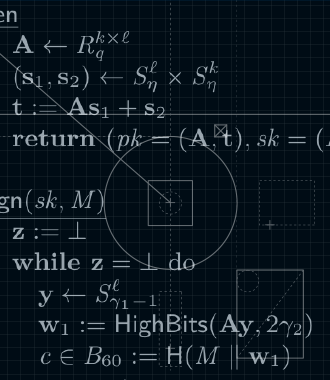-
Platform
BackManage PKI and Certificate Risk in One PlaceManage PKI and Certificate Risk in One PlaceThe Smarter Way to Manage Certificate LifecyclesContinuous Signing for CI/CD & DevOpsSecure, Flexible and Global SigningTrusted From Silicon to In-the-FieldDevice Security Without CompromiseAccelerate Secure App Development

-
Solutions
BackThe Smarter Way to Manage Certificate LifecyclesSoftware Supply Chain Security
Protect your entire software supply chain with automated tools

-
Buy
BackWildcard DomainBUY
Find the right TLS/SSL Certificate to secure your website
eIDAS-compliant transaction and website document security solutions
-
Company
BackManage PKI and Certificate Risk in One PlaceManage PKI and Certificate Risk in One PlaceThe Smarter Way to Manage Certificate LifecyclesContinuous Signing for CI/CD & DevOpsSecure, Flexible and Global SigningTrusted From Silicon to In-the-FieldDevice Security Without CompromiseAccelerate Secure App Development

-
Resources
Back
-
Support
BackContact Our Support Team
- Americas
- 1.866.893.6565 (Toll-Free U.S. and Canada)
- 1.801.770.1701 (Sales)
- 1.801.701.9601 (Spanish)
- 1.800.579.2848 (Enterprise only)
- 1.801.769.0749 (Enterprise only)
- Europe, Middle East Africa
- +44.203.788.7741
- Asia Pacific, Japan
- 61.3.9674.5500
- Americas
- Contact us
- Language
Join the world’s top digital experts in the first global focus on preparing for the quantum computing revolution. Watch now >

Dilithium
A Post-Quantum Cryptography solution for digital signing
What is
CRYSTALS-Dilithium?
Dilithium is a lattice-based digital signing scheme that secures data against quantum computing threats. It is based on the CRYSTALS (Cryptographic Suite for Algebraic Lattices) family of Post-Quantum Cryptography (PQC) algorithms. It is particularly well suited to protect against chosen-message attacks.
Because Dilithium is based on hardness of lattice problems over module lattices, it’s a PQC scheme that’s much faster than hash-based schemes, and it’s easy to implement, because it doesn’t need Gaussian sampling.


Dilithium Is Based on Fiat-Shamir With Aborts
At its base, Dilithium operates on Lyubashevsky’s Fiat-Shamir with Aborts for its lattice scheme. This paradigm repeats executions until verifying a loop iteration that doesn’t abort. The result of this protocol use is a significantly smaller public key, resulting in higher security and efficiency with lower energy consumption.
Dilithium Variants
Unlike other PQC signing schemes, the most recent versions of Dilithium use AES-256 instead of SHAKE. This delivers an expanded matrix and making vector. AES-256 is also used to sample secret polynomials.
Dilithium variants:

Dilithium2-AES

Dilithium3-AES

Dilithium5-AES
The inventors of Dilithium recommend Dilithium 3-AES, because it achieves at least 128 bits of security against classical and quantum attacks.

NIST Approval
In 2016, the United States National Institute of Standards and Technology put out a call for proposals, requesting submissions of post-quantum cryptographic schemes. Round 1 submissions closed on November 30, 2017. Several dozen schemes were presented and considered.
CRYSTALS-Dilithium was one of four schemes recommended by NIST as an accepted standard for PQC, and one of only three recommended for digital signing.
-
Company
-
My Account
-
Resources
-
Sites
-
© 2025 DigiCert, Inc. All rights reserved.
Legal Repository Audits & Certifications Terms of Use Privacy Center Accessibility Cookie Settings


